Ties to HOME
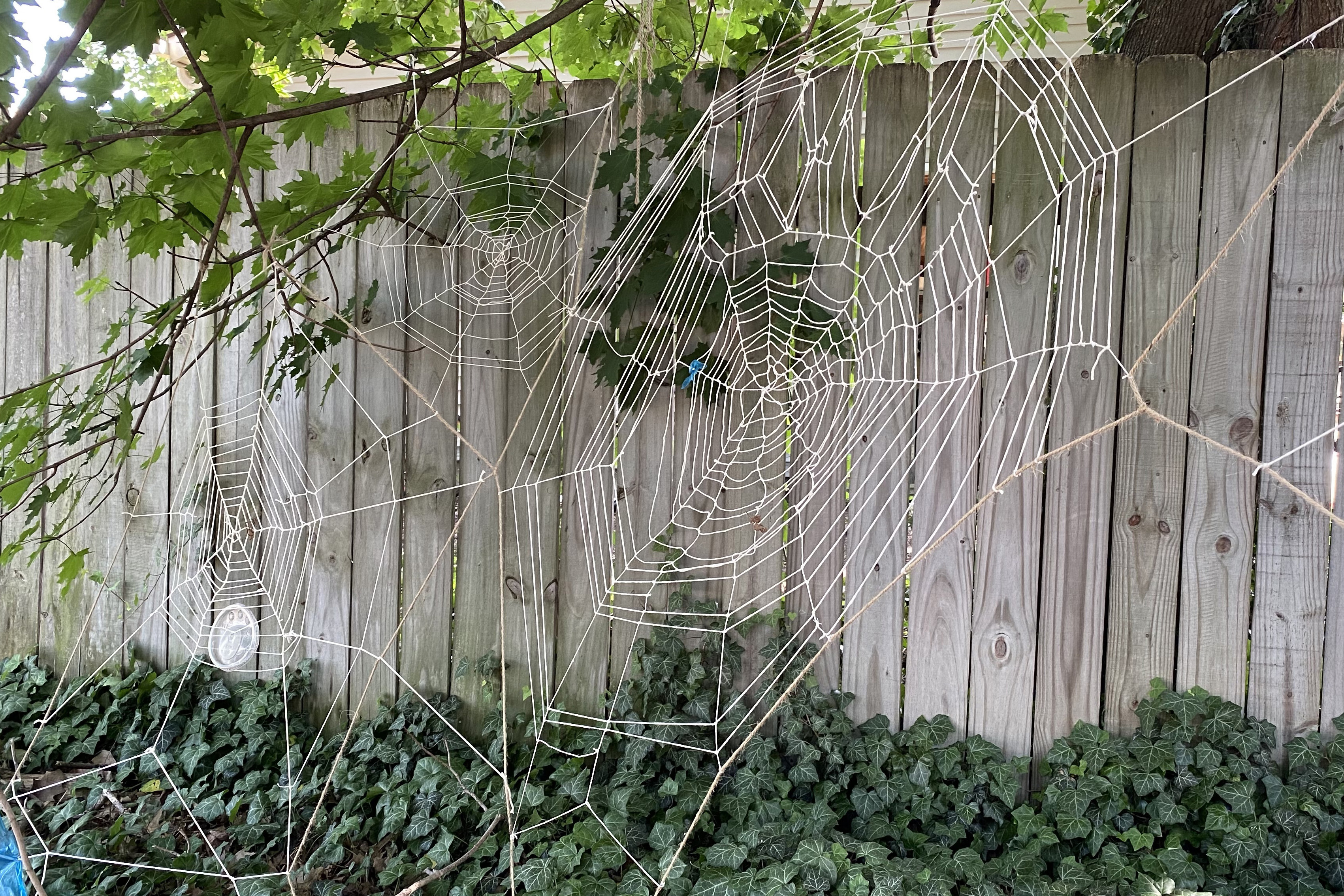

Ties to Home invites contemplation on the barriers between humans and the Earth, offering a glimpse into the intricate web of relationships throughout our shared environment.
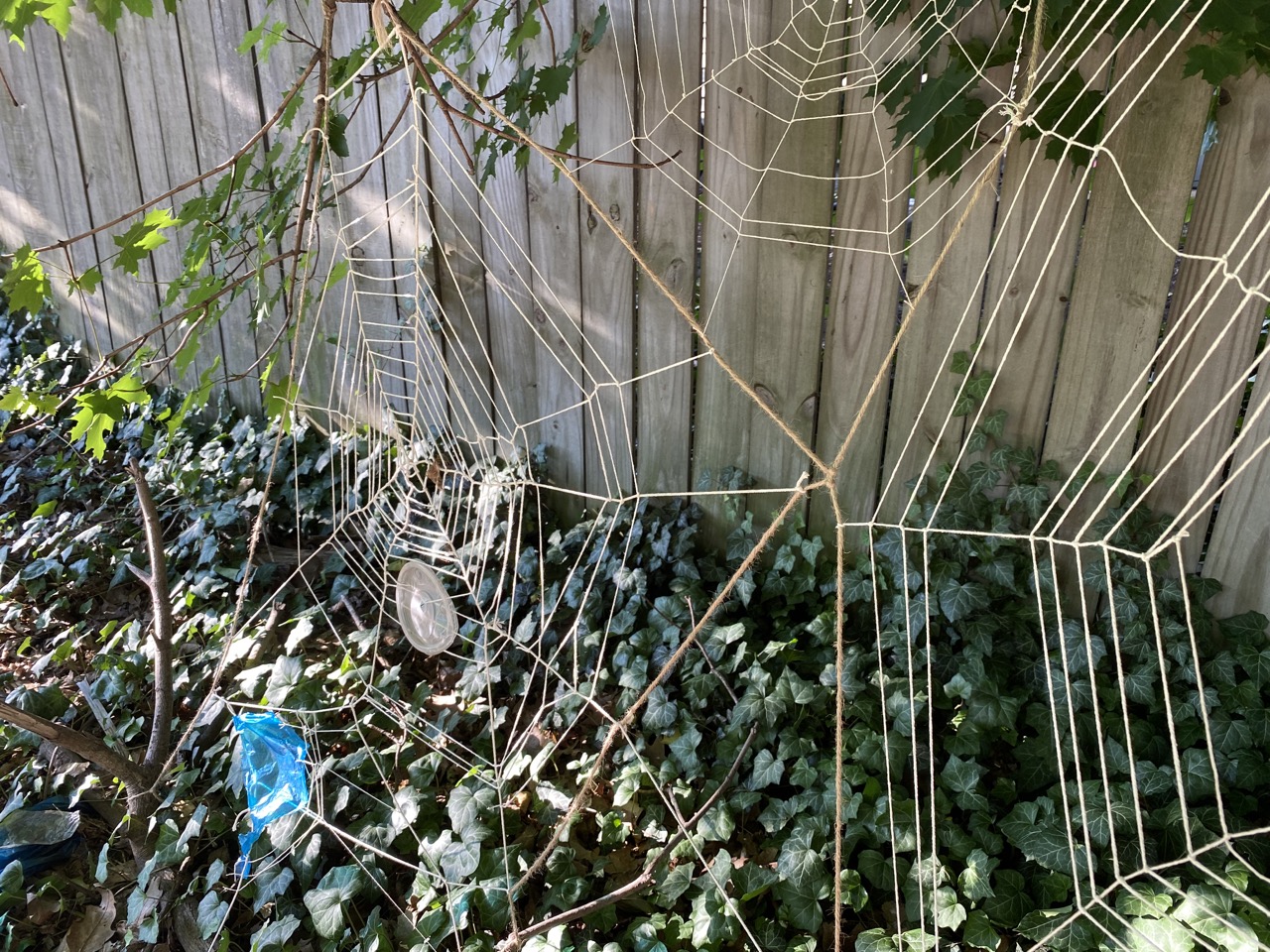
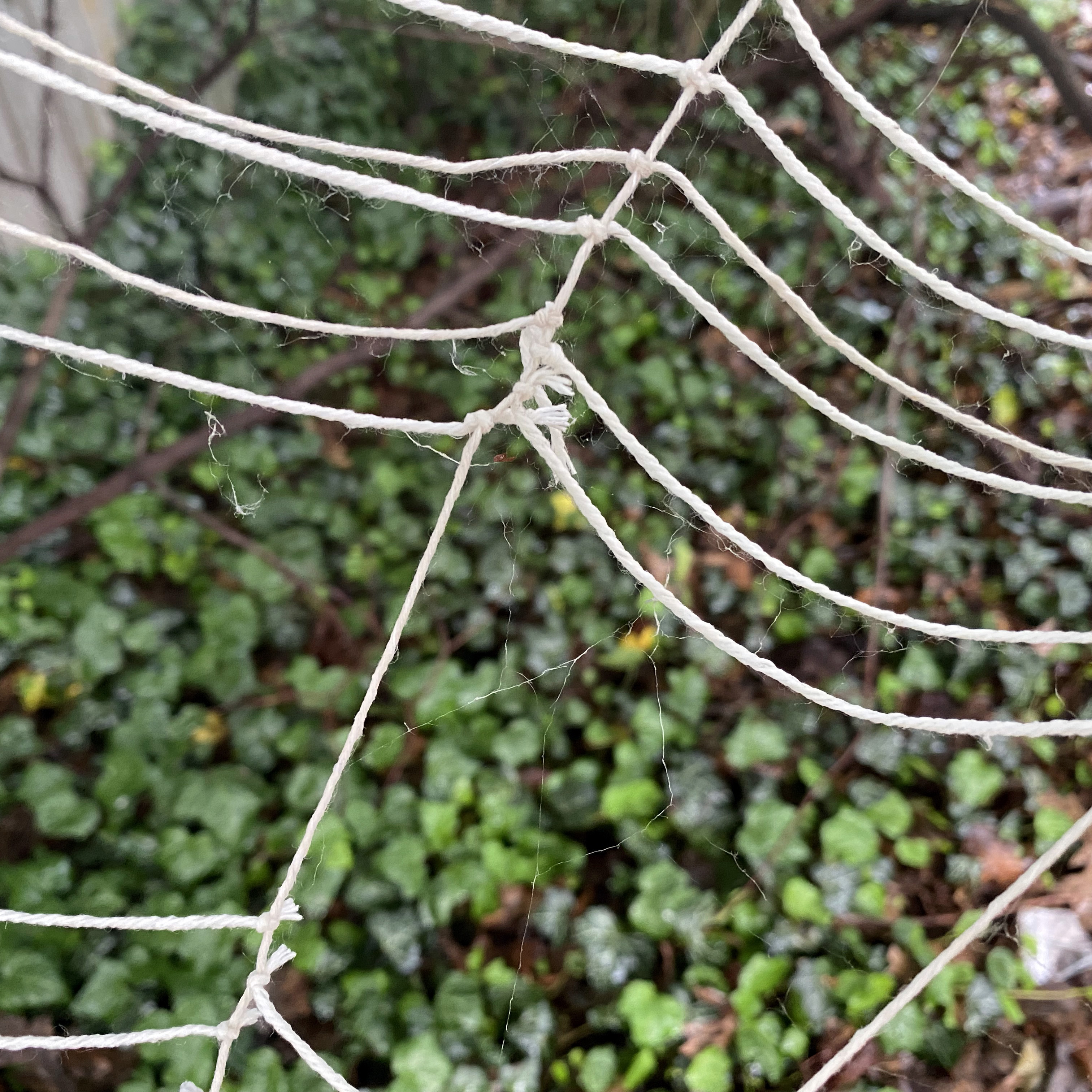

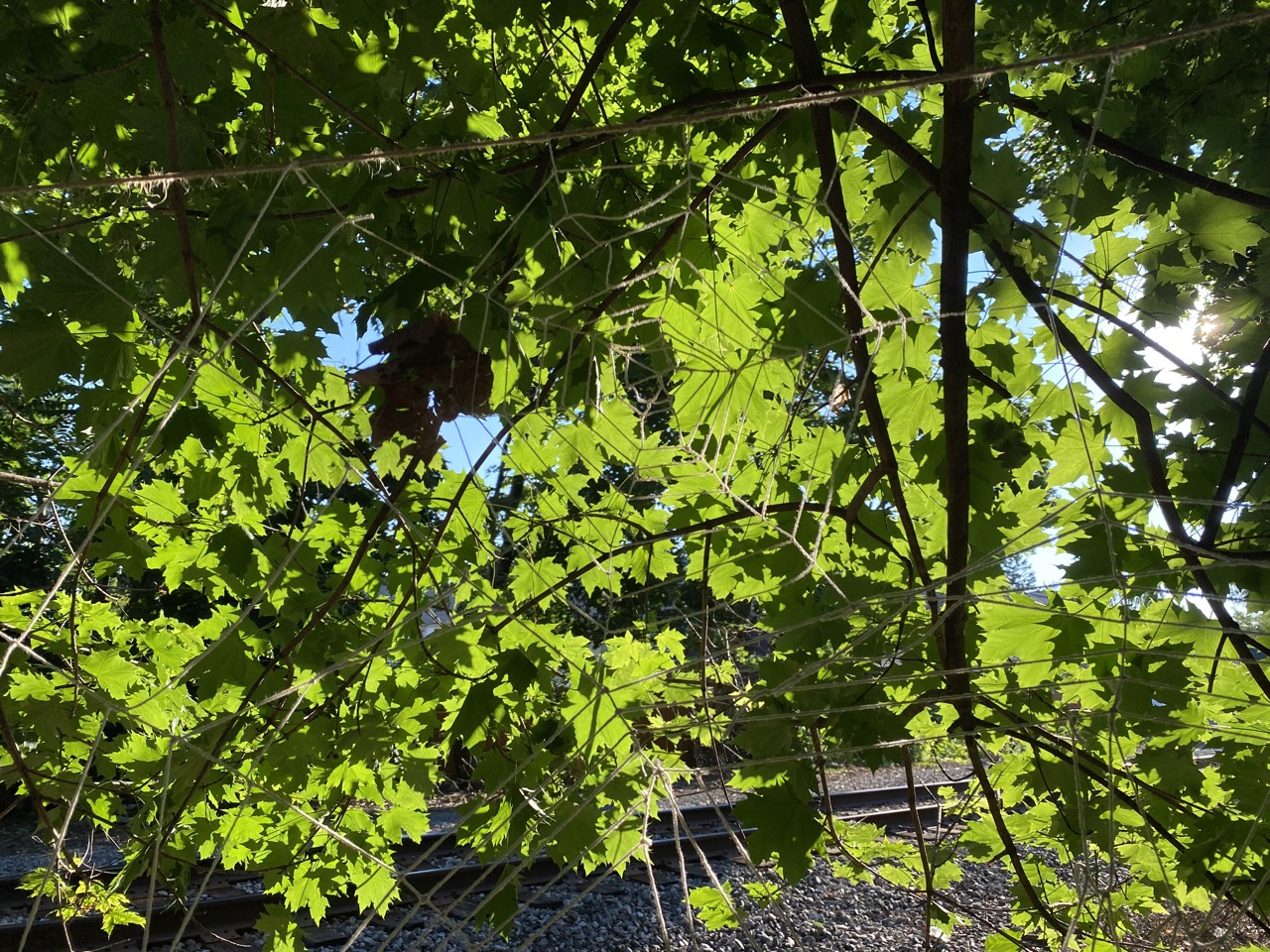
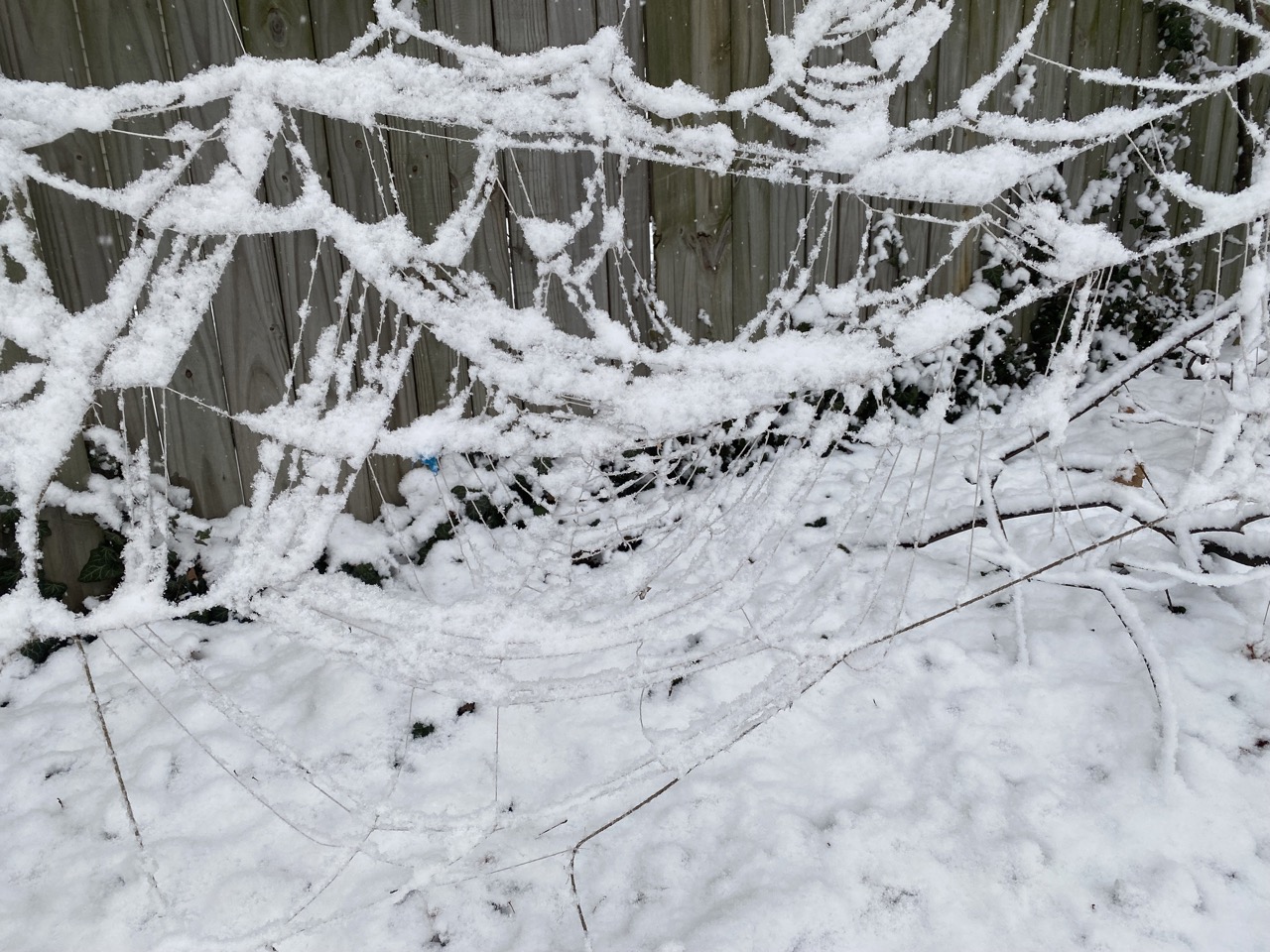
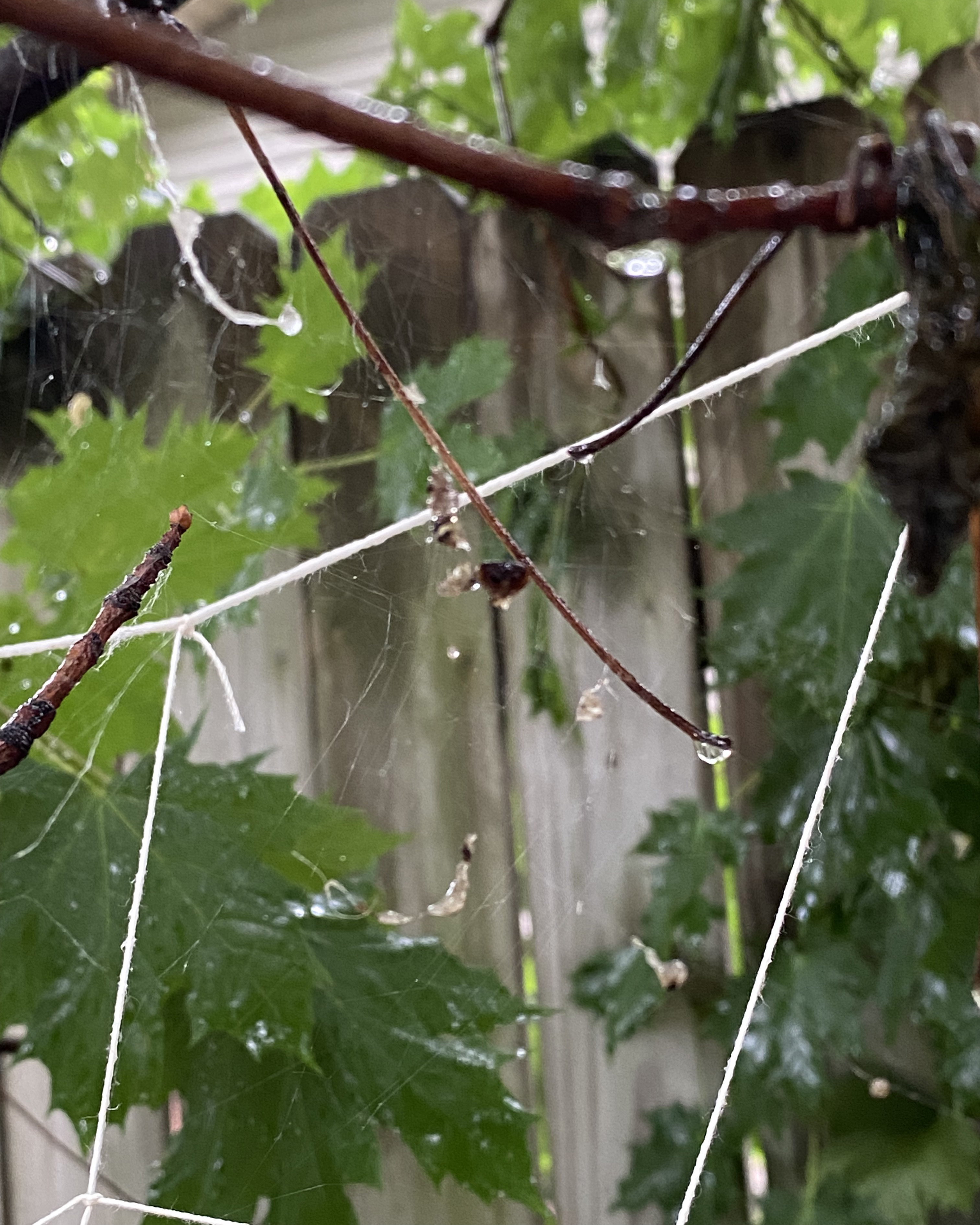
About the work
Ties to Home (2022) is a durational installation located near my home on a path next to railroad tracks. The route
is frequented by students walking home from school and people walking their
dogs, making the installation a subtle part of everyday communal space.
The installation is an approximately 6 x 12 x 3-foot set of interconnected webs comprised of cotton string and jute twine attached to tree branches and trunks and itself. More minor webs extend from the largest one, incorporating found objects such as plastic and paper trash collected from the surrounding area. The use of biodegradable materials—cotton and jute—ensures the piece will naturally decay over time, minimizing any negative impact on plant growth or local wildlife.
Constructed over three weeks, I tied hundreds of knots during repeated visits to the site. The installation is left unmarked, seamlessly blending into its natural surroundings, inviting casual interactions as people pass by. Insects land on the webs, and animals continue to use the space, living with the work as part of their habitat.
Over time, as the installation degrades, the materials become part of the ongoing cycle of organic material in both the natural and human-made landscape.
The installation is an approximately 6 x 12 x 3-foot set of interconnected webs comprised of cotton string and jute twine attached to tree branches and trunks and itself. More minor webs extend from the largest one, incorporating found objects such as plastic and paper trash collected from the surrounding area. The use of biodegradable materials—cotton and jute—ensures the piece will naturally decay over time, minimizing any negative impact on plant growth or local wildlife.
Constructed over three weeks, I tied hundreds of knots during repeated visits to the site. The installation is left unmarked, seamlessly blending into its natural surroundings, inviting casual interactions as people pass by. Insects land on the webs, and animals continue to use the space, living with the work as part of their habitat.
Over time, as the installation degrades, the materials become part of the ongoing cycle of organic material in both the natural and human-made landscape.